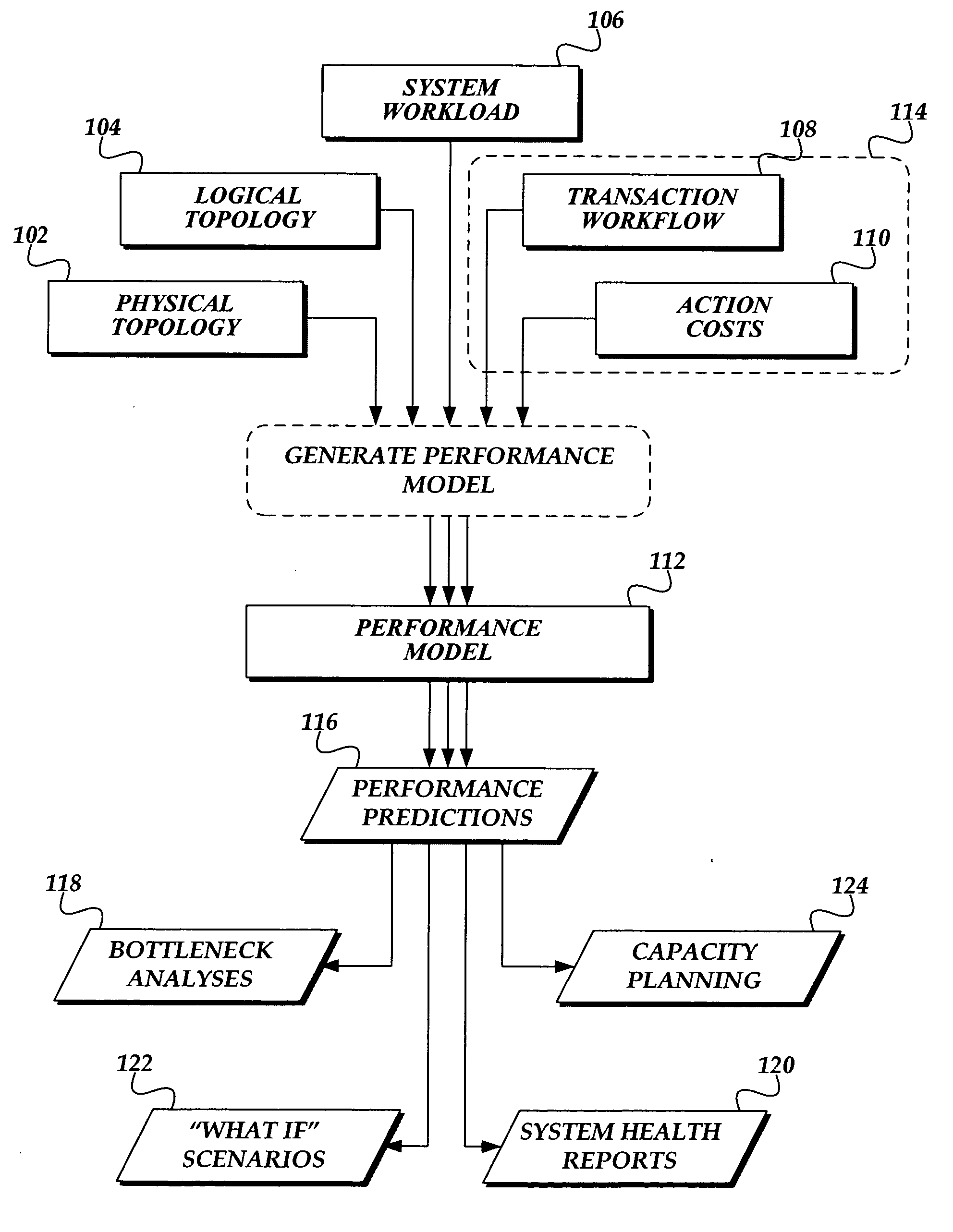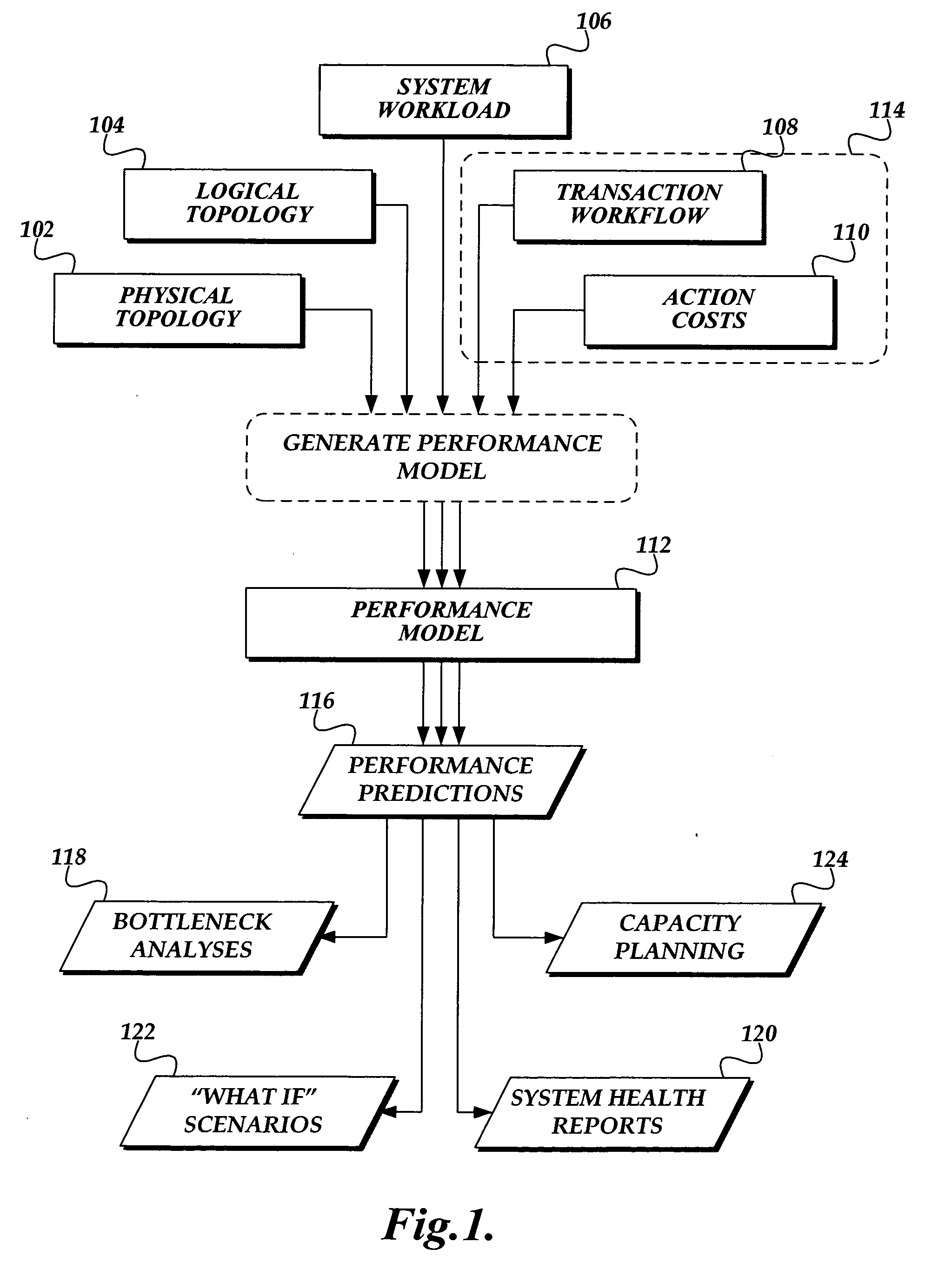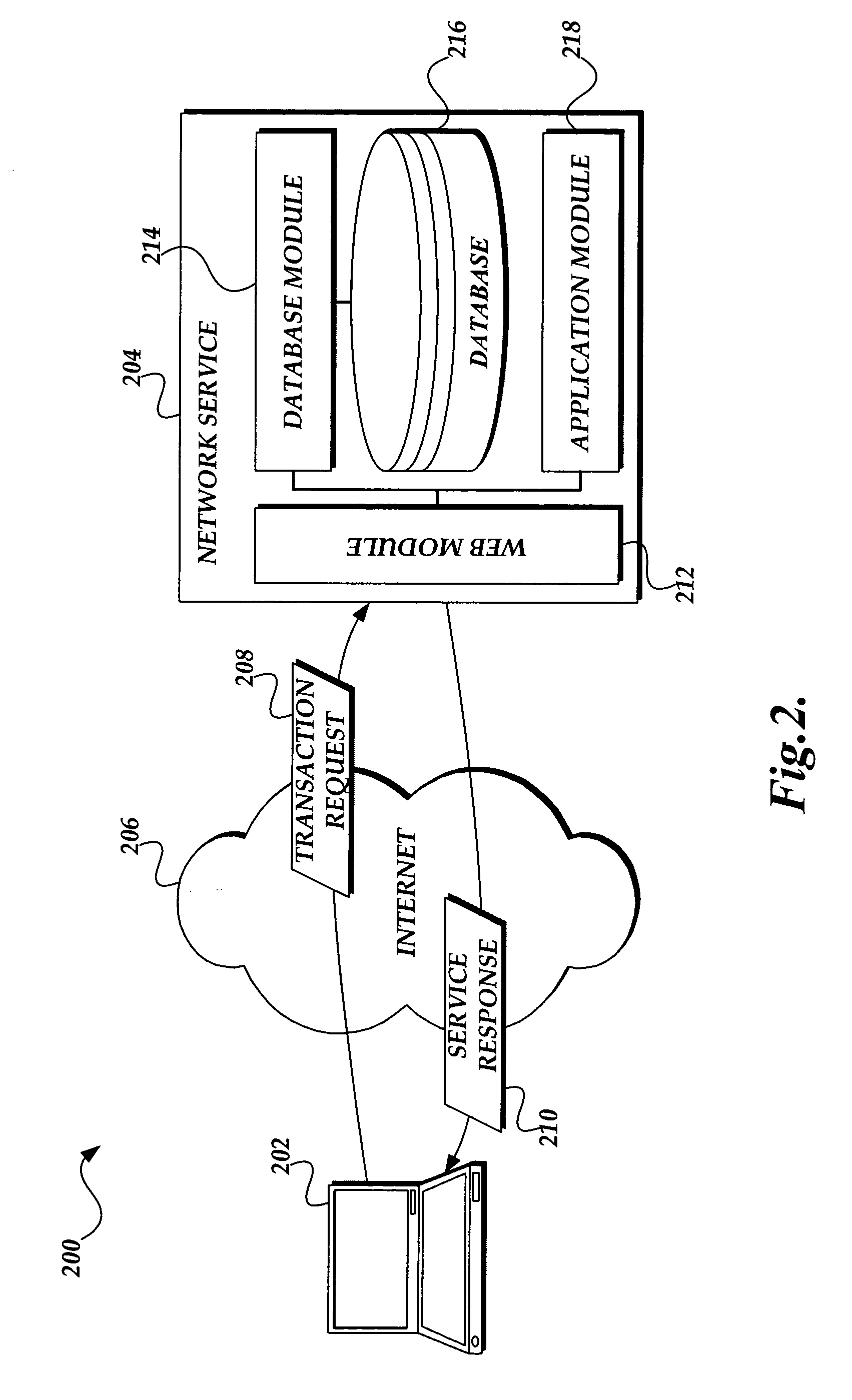Generating static performance modeling factors in a deployed system
- Summary
- Abstract
- Description
- Claims
- Application Information
AI Technical Summary
Benefits of technology
Problems solved by technology
Method used
Image
Examples
Embodiment Construction
[0019] According to aspects of the present invention, static performance factors 114 can now be derived in a “live”, deployed subject system. FIG. 2 is a pictorial diagram illustrating an exemplary operating environment 200 suitable for implementing aspects of the present invention, i.e., deriving static performance factors 114 in a “live”, deployed subject system. In particular, FIG. 2 illustrates an exemplary single-machine network service 204 (the network service 204 being the subject system to be modeled) communicating with a client computer 202 over the Internet 206, where the network service / subject system provides a to-be-modeled service to the client computer.
[0020] As those skilled in the art will appreciate, typical of this type of system, the client computer 202 submits transaction requests, such as transaction request 208 to the network service 204. In turn, the network service 204 processes the received transaction request 208, and in many cases returns a service respo...
PUM
 Login to View More
Login to View More Abstract
Description
Claims
Application Information
 Login to View More
Login to View More - R&D
- Intellectual Property
- Life Sciences
- Materials
- Tech Scout
- Unparalleled Data Quality
- Higher Quality Content
- 60% Fewer Hallucinations
Browse by: Latest US Patents, China's latest patents, Technical Efficacy Thesaurus, Application Domain, Technology Topic, Popular Technical Reports.
© 2025 PatSnap. All rights reserved.Legal|Privacy policy|Modern Slavery Act Transparency Statement|Sitemap|About US| Contact US: help@patsnap.com



